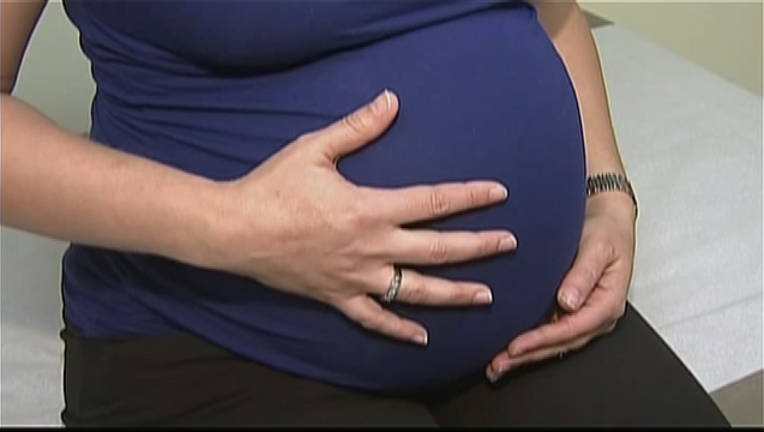Court ponders abortion waiting period

TALLAHASSEE, Fla. (NSF) - A legal battle involving one of the nation’s most emotionally charged issues continued Tuesday in Florida, as a three-judge appellate panel heard arguments in a long-running dispute over a 24-hour waiting period for abortions.
The arguments at the 1st District Court of Appeal came a little more than a year after a Leon County circuit judge struck down a 2015 state waiting-period law as unconstitutional.
The decision by Leon County Circuit Judge Terry Lewis, who has since retired, made permanent a temporary injunction granted by the Florida Supreme Court in 2017, after a Gainesville abortion clinic challenged the law as a violation of privacy rights under the state Constitution.
Attorneys for the state, who are asking the appellate court to order a trial in the case, argued Tuesday that the Florida law is aimed at preventing what they claim are dangerous side-effects caused by abortions, such as depression and suicide.
But Judge James R. Wolf grilled Deputy Solicitor General James H. Percival about whether the state has the authority to “require somebody to delay the exercise of their constitutional right,” setting aside the issue of waiting periods for gun purchases.
For example, Wolf posited, would the state be allowed to pass a law requiring people to wait 24 hours before invoking their right to a lawyer?
“There are a number of examples in Florida law that involve reflection periods with respect to issues that involve the right to privacy,” such as marriage, adoption and divorce, Percival answered.
The abortion waiting period is a “reflection period” that gives a woman time to consider the information doctors are required to provide before she can have the procedure, he said.
But Judge Harvey Jay asked whether the Legislature “has mandated a reflection period” for any other medical procedure.
“I’m not aware of any” that are mandated, but waiting periods are part of the “standard of care” in numerous other procedures, the state’s lawyer replied.
Abortion is an “outlier” to other “similarly invasive” procedures, and can result in “increased anxiety, increased depression, increased substance abuse, increased suicidal behavior,” Percival argued.
But Wolf pointed out that critics of the policy maintain “the state is singling out abortion because they (state policymakers) don’t like abortion.”
“Could the Legislature say 24 hours really isn’t enough? We really think people should think about this for a week?” he asked.
That isn’t the issue before the court, Percival said.
Julia Kaye, an attorney with the American Civil Liberties Union Foundation’s Reproductive Freedom Project, argued that the law is unconstitutional for a variety of reasons, including that it lacks “common sense” exceptions and is inconsistent.
“De facto delays” in other medical procedures are the result of scheduling conflicts, insurance approvals and common practice, Kaye said.
“It is undisputed that physicians in every other area of medicine retain discretion to perform a procedure ultimately whenever they see fit,” she argued. “If the state really believed it were essential that there were this delay period before a patient could consent, it would require it more broadly.”
The state “is trying to shoehorn moral and social concerns into this medical informed-consent statute,” she argued.
But, stressing he was asking a hypothetical question, Wolf asked “what if” the state were able to show that women who had abortions were at higher risk of committing suicide.
“The state has not put forth a shred of evidence that pregnant women are incapable of evaluating the medical risks of either continuing or ending the pregnancy without a state-imposed delay,” Kaye, who is pregnant, said.
But Florida Family Policy Council President John Stemberger told The News Service of Florida after the hearing that abortion is treated differently for a reason.
Abortion is “a life-changing, irreversible decision that takes the life of another human being,” said Stemberger, who attended the arguments and is a prominent religious conservative in the state.
“That’s just the biological reality of it. And that in and of itself, the weight of it is different. So it is an outlier in that way. I didn’t hear the state make that point, but it is the point, and it is different from any other procedure, for that reason,” he said.
Tuesday’s arguments took place as Republican lawmakers consider several anti-abortion measures, including one that would block teenagers from getting abortions unless their parents give consent and another that would ban doctors from performing abortions after a fetal heartbeat is detected.
“The abortion restrictions the Florida Legislature is considering are both dangerous and blatantly unconstitutional,” Kaye told the News Service after the hearing. “We all hope that every young person would be able to make decisions with compassion and guidance from their parents, but sadly that’s not the case. On top of that, this (proposed parental-consent) law is not only dangerous, but the Florida Supreme Court already settled this precise question, striking down this exact same type of law 30 years ago.”
The GOP legislators behind the bills and anti-abortion activists are emboldened, however, by a revamped Florida Supreme Court that has taken a more conservative shift since Republican Gov. Ron DeSantis took office in January. The governor’s new additions to the seven-member court came after the mandatory retirement of three justices who were part of a liberal majority.
“I think everybody’s looking forward to seeing what the new court is going to do with a variety of issues, and this is one of them,” Stemberger said.

